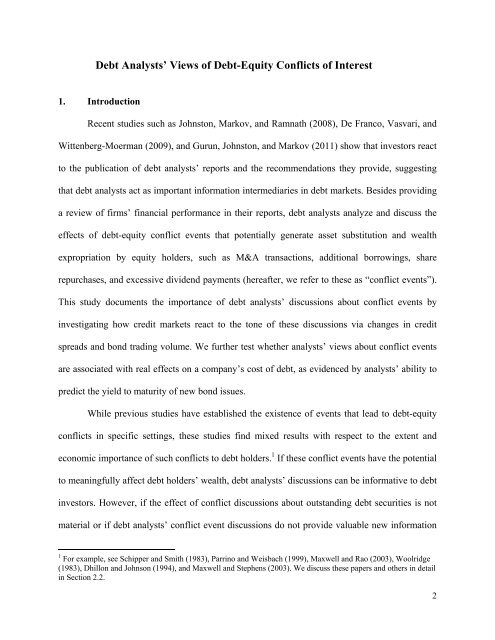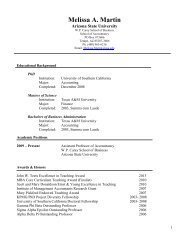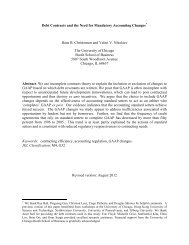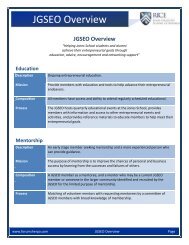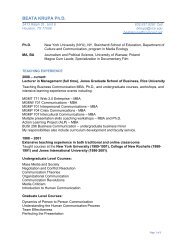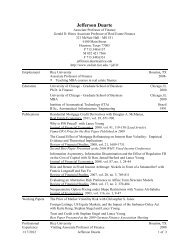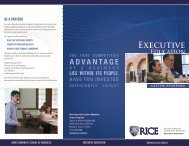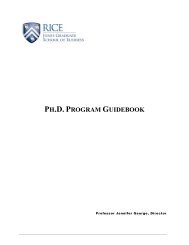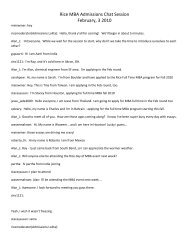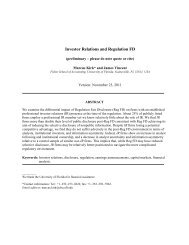Debt Analysts' Views of Debt-Equity Conflicts of Interest
Debt Analysts' Views of Debt-Equity Conflicts of Interest
Debt Analysts' Views of Debt-Equity Conflicts of Interest
Create successful ePaper yourself
Turn your PDF publications into a flip-book with our unique Google optimized e-Paper software.
<strong>Debt</strong> Analysts’ <strong>Views</strong> <strong>of</strong> <strong>Debt</strong>-<strong>Equity</strong> <strong>Conflicts</strong> <strong>of</strong> <strong>Interest</strong><br />
1. Introduction<br />
Recent studies such as Johnston, Markov, and Ramnath (2008), De Franco, Vasvari, and<br />
Wittenberg-Moerman (2009), and Gurun, Johnston, and Markov (2011) show that investors react<br />
to the publication <strong>of</strong> debt analysts’ reports and the recommendations they provide, suggesting<br />
that debt analysts act as important information intermediaries in debt markets. Besides providing<br />
a review <strong>of</strong> firms’ financial performance in their reports, debt analysts analyze and discuss the<br />
effects <strong>of</strong> debt-equity conflict events that potentially generate asset substitution and wealth<br />
expropriation by equity holders, such as M&A transactions, additional borrowings, share<br />
repurchases, and excessive dividend payments (hereafter, we refer to these as “conflict events”).<br />
This study documents the importance <strong>of</strong> debt analysts’ discussions about conflict events by<br />
investigating how credit markets react to the tone <strong>of</strong> these discussions via changes in credit<br />
spreads and bond trading volume. We further test whether analysts’ views about conflict events<br />
are associated with real effects on a company’s cost <strong>of</strong> debt, as evidenced by analysts’ ability to<br />
predict the yield to maturity <strong>of</strong> new bond issues.<br />
While previous studies have established the existence <strong>of</strong> events that lead to debt-equity<br />
conflicts in specific settings, these studies find mixed results with respect to the extent and<br />
economic importance <strong>of</strong> such conflicts to debt holders. 1 If these conflict events have the potential<br />
to meaningfully affect debt holders’ wealth, debt analysts’ discussions can be informative to debt<br />
investors. However, if the effect <strong>of</strong> conflict discussions about outstanding debt securities is not<br />
material or if debt analysts’ conflict event discussions do not provide valuable new information<br />
1 For example, see Schipper and Smith (1983), Parrino and Weisbach (1999), Maxwell and Rao (2003), Woolridge<br />
(1983), Dhillon and Johnson (1994), and Maxwell and Stephens (2003). We discuss these papers and others in detail<br />
in Section 2.2.<br />
2


